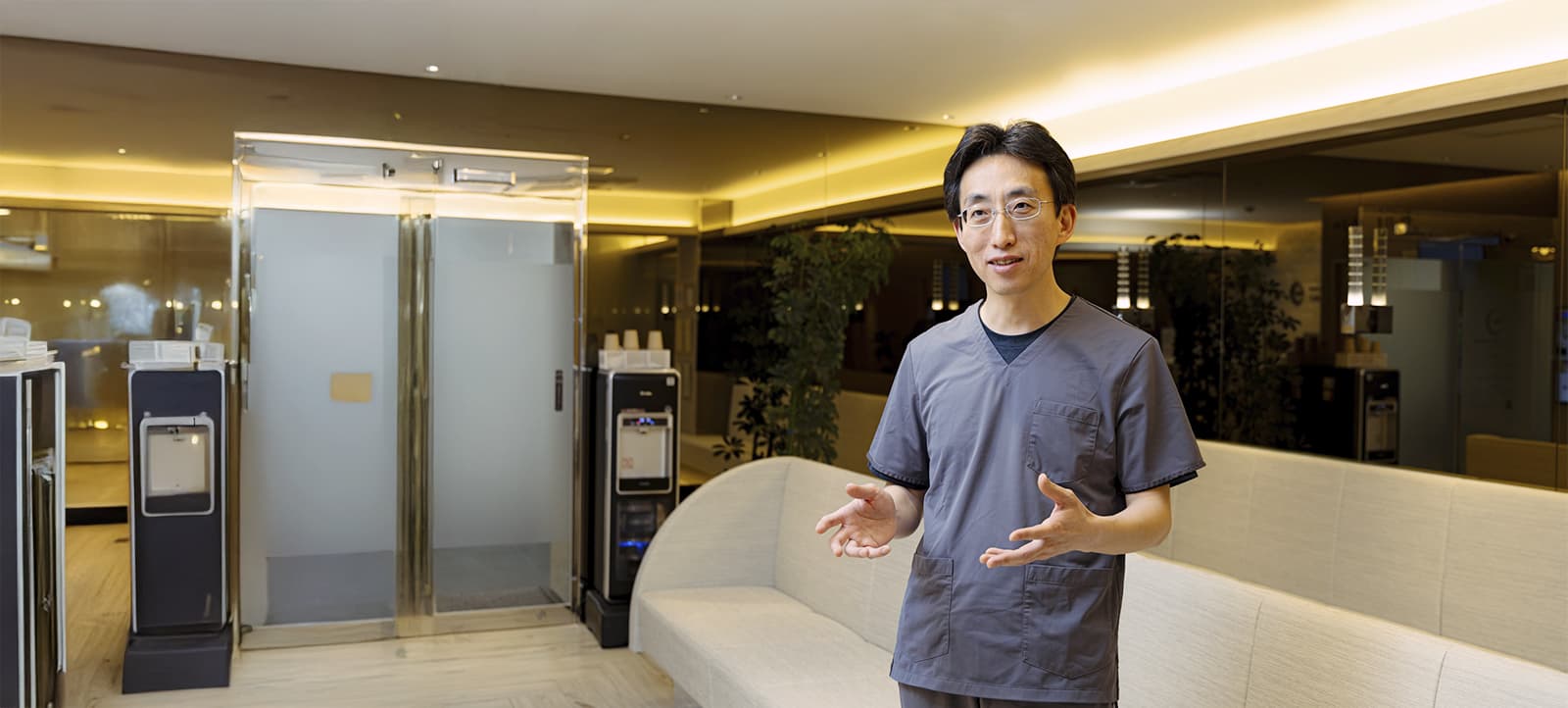My History
Gastrointestinal endoscopy often brings to mind discomfort or pain—but at our clinic, we aim to change that perception. By truly listening to each patient’s needs, we provide customized, comfortable procedures tailored to the individual. Our mission is twofold: to promote “personalized endoscopy” and to introduce a new standard of “hospitality-centered care” in medicine. For example, we offer four levels of sedation, from full anesthesia to none at all, to meet requests like, “I want to be completely asleep,” or “I’d like some sedation but still want to watch the monitor.” Even for colonoscopy prep, patients can choose whether to take the laxatives at home or at the clinic, and whether to use high-resolution magnifying scopes. These options reflect our commitment to both comfort and precision—and are all part of our hospitality approach.
But “hospitality-centered care” isn’t just about technology. It’s also about communication and kindness. Our team undergoes step-by-step training focused on patient interaction and information sharing. We ask every patient to complete a survey, and our physicians review the feedback daily. This allows us to make real-time improvements, enhance our skills, and stay motivated to deliver even better care. Through this holistic approach, we strive to offer a safe, reassuring, and truly exceptional patient experience.
The Present
Hospitality-centered care, including personalized endoscopic procedures, is focused on patient satisfaction—but achieving that goal requires creating a supportive and flexible work environment for our staff. We believe that when staff feel valued and fulfilled, they are better equipped to deliver high-quality care to patients. Our clinic operates on a shift-based schedule, but in the past, shifts were finalized too late, making it difficult for team members to take time off on their preferred dates. To address this, we introduced a new system that allows staff to request time off up to a year in advance. Since then, many have shared how this change has improved their work-life balance—with comments like “I can finally attend my child’s school events” or “I’m able to spend more time with my family.” These improvements have contributed to a more fulfilling personal life for our team.
I am currently focused on mentoring the next generation of medical professionals while also actively participating in various study groups and professional development workshops. The insights I gain are shared across the clinic and contribute to enhancing the knowledge and mindset of our entire team, including physicians. I remain committed to staying up to date with the latest medical advancements and make it a priority to share relevant information so that our doctors and nurses can actively participate in academic conferences and training sessions. This information is then communicated to all staff, helping us collectively review and refresh our knowledge. Through this ongoing process, we continuously improve the quality of care we provide.
These initiatives also contribute to a strong sense of fulfillment among our team. As staff members deepen their knowledge and refine their skills, they gain a greater sense of pride and motivation in their work. This, in turn, creates a positive cycle in which staff satisfaction leads directly to patient satisfaction. Sustaining this cycle and delivering its benefits to our patients is at the heart of what we strive to achieve.
For the Future
In recent years, one of the most talked-about developments in my field has been the introduction of AI-assisted endoscopy. Our clinic has already adopted this technology. For instance, during a colonoscopy, the AI system can detect abnormalities such as polyps in real time and alert the physician. While currently used as a support tool to help prevent oversights, we expect its role to expand significantly as the technology continues to evolve.
To further improve patient comfort during colonoscopy, we’ve also implemented a navigation system designed to reduce the stress and discomfort often associated with the procedure. These efforts aim to dispel the common perception that endoscopy is painful or unpleasant. Few medical institutions currently use both AI-assisted endoscopy and navigation systems, making us a pioneer in the adoption of advanced technologies.
Our medical group, Gyosyokai Medical Corporation, now operates three clinics, and we continue to expand. As part of this growth, we are exploring the addition of new medical specialties. We’ve also seen an increase in international patients in recent years due to rising demand for medical tourism. To meet this need, we recognize the importance of strengthening our infrastructure and support systems.
Personally, I am deeply committed to promoting “hospitality-centered care” across borders, regardless of nationality or ethnicity. As part of this vision, we are considering establishing a base in Asia to share our expertise in “hospitality-centered care”, including personalized endoscopic procedures. In many countries, access to endoscopy remains limited. By expanding internationally, we hope to lower these barriers and help create an environment where early detection and treatment are possible—before serious illness has a chance to develop.
